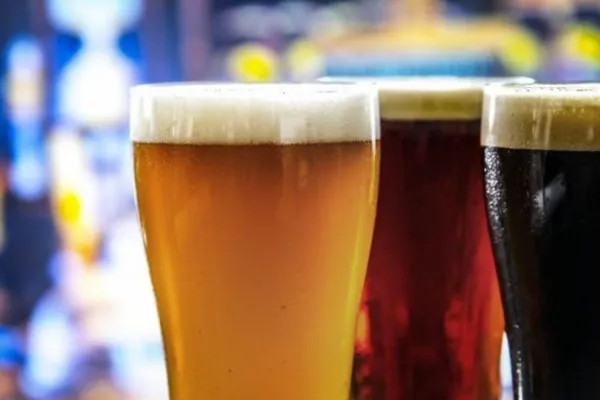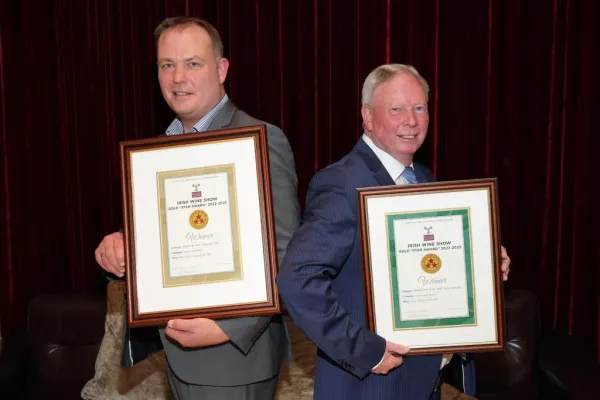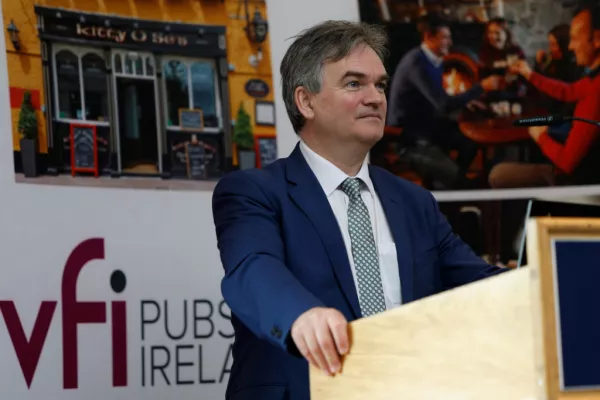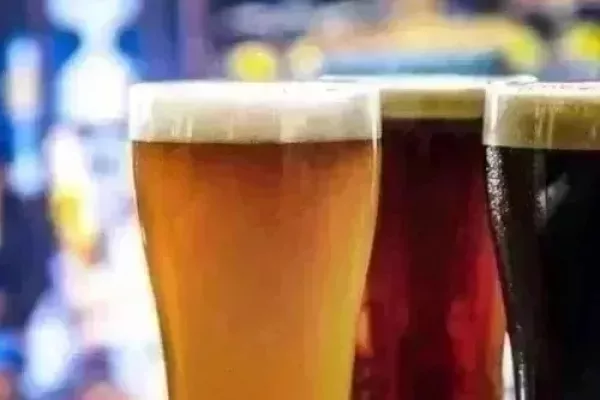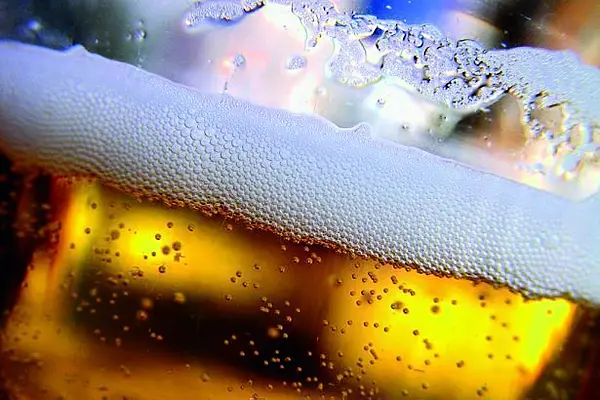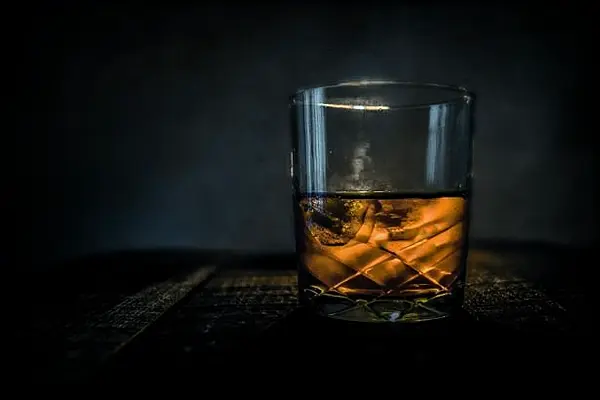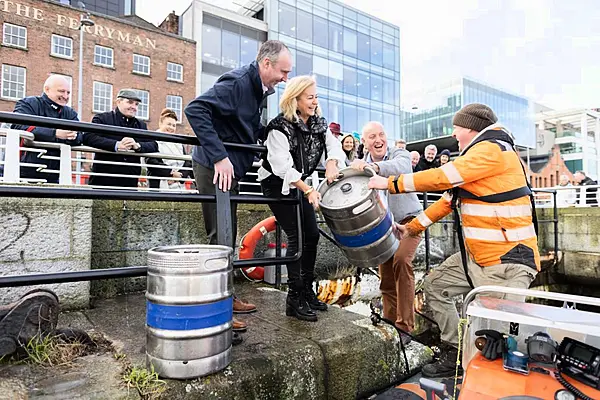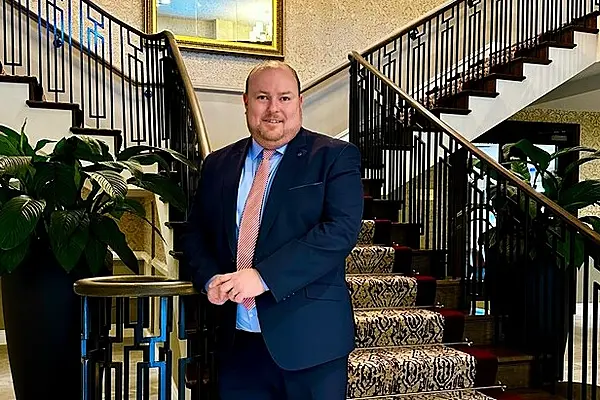According to a new survey conducted by the Drinks Industry Group of Ireland (DIGI), the UK is the most important tourism market for 57% of Irish pubs and 44% of Irish restaurants.
Only 18% of the pubs surveyed and 17% of the restaurants said that the USA is their number one tourism market.
Over 500 DIGI members took part in the survey, which, in addition to research conducted by Amárach Research among 1,000 Irish consumers, forms part of DIGI's new "Building a Sustainable Drinks and Hospitality Sector: The Role of Government Policy" report.
The report was authored by DCU economist Anthony Foley, and underlines the importance of drinks and hospitality businesses to the Irish economy, particularly to tourism.
According to DIGI's research, 51% of Irish people bring international visitors to their local pub and 64% bring their guests to their local restaurant, while just 1% bring their guests to their local tourist attraction.
CSO figures revealed that in May of this year, trips to Ireland by UK residents decreased by 4.4%.
Restaurant And Pub Visitation Data
DIGI found that 32% of Irish consumers visit a restaurant at least once a week, and 23% visit a pub weekly. 72% of people surveyed said that they go to a pub to meet friends, while 63% of publicans said that their business helps elderly people living in isolation to socialise.
Alcohol Excise Tax Impact And Rising Business Costs
71% of the publicans who took part in DIGI's survey said that Ireland's high alcohol excise tax has negatively impacted their business over the past 12 months, while 37% of off-licences said that they believe that they will close within the next 10 years, and 10% of rural publicans said that they will have to let staff go this year as a result of rising business costs.
Employment
According to DIGI, the drinks industry directly and indirectly employs 90,000 people, and the drinks and hospitality sector generates €1.4 billion in exports.
Alcohol Manufacturing Licences And Distillery Numbers
The group stated that the number of alcohol manufacturing licences in Ireland increased from 32 in 2009 to 137 in 2017, and the number of working distilleries in Ireland increased from four in 2013 to 25 in 2019, 17 of which have visitor centres.
A Call To Reduce Excise Tax
DIGI asserted that the more money that business owners are forced to spend on levies such as excise tax, the less that is available to invest back into their business to develop tourism offerings, improve existing products, create new products and hire staff.
DIGI is calling on the government to reduce Ireland's excise tax ahead of Budget 2020 in a bid to safeguard the drinks and hospitality sector's progress and provide the means for further growth and job creation.
"Facing Into Some Very Challenging Times"
DIGI chair and director of communications and corporate affairs at Irish Distillers Rosemary Garth stated, "The drinks and hospitality industry is one of Ireland's most important sectors in terms of tourism. This industry delivers over €6 billion in tourism spend, but with Brexit uncertainty and our lack of competitiveness in Europe, this industry is facing into some very challenging times.
"Economically, socially and culturally, Ireland is undoubtedly a changed country, but some things will remain permanent important fixtures of Irishness, and that includes enjoying a pint at a pub, a glass of wine at a restaurant or a cocktail in a hotel bar with friends, family and colleagues.
"Our research demonstrates this. However, the government is publicly indifferent to the success of Ireland's drinks and hospitality sector, and is more than happy to burden it with a punishing excise tax rate and high VAT.
"We want the Irish government to learn from its EU counterparts. Many European governments, particularly those in countries with a long history of alcohol production, like France, Italy and Germany, have nurtured a positive relationship with their drinks and hospitality businesses. In France, excise tax on a glass of wine is just one cent, and the Germans charge only five cents on a pint of lager.
"To protect jobs and create new business opportunities, especially in rural Ireland, we are calling on the government to take steps towards forming a new relationship with the drinks and hospitality sector, and reduce excise tax on alcohol by 15% over the next two years."
© 2019 Hospitality Ireland – your source for the latest industry news. Article by Dave Simpson. Click subscribe to sign up for the Hospitality Ireland print edition.
